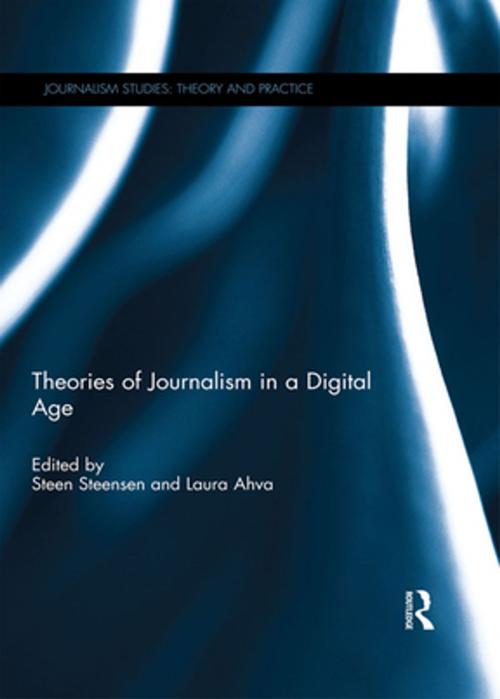| Author: | ISBN: | 9781134841356 | |
| Publisher: | Taylor and Francis | Publication: | February 2, 2018 |
| Imprint: | Routledge | Language: | English |
| Author: | |
| ISBN: | 9781134841356 |
| Publisher: | Taylor and Francis |
| Publication: | February 2, 2018 |
| Imprint: | Routledge |
| Language: | English |
Given the interdisciplinary nature of digital journalism studies and the increasingly blurred boundaries of journalism, there is a need within the field of journalism studies to widen the scope of theoretical perspectives and approaches. Theories of Journalism in a Digital Age discusses new avenues in theorising journalism, and reassesses established theories.
Contributors to this volume describe fresh conceptssuch as de-differentiation, circulation, news networks, and spatiality to explain journalism in a digital age, and provide concepts which further theorise technology as a fundamental part of journalism, such as actants and materiality. Several chapters discuss the latitude of user positionsin the digitalised domain of journalism, exploring maximal–minimal participation, routines–interpretation–agency, and mobility–cross-mediality–participation. Finally, the book provides theoretical tools with which to understand, in different social and cultural contexts, the evolving practices of journalism, including innovation, dispersed gatekeeping, and mediatized interdependency. The chapters in this book were originally published in special issues of Digital Journalism and Journalism Practice.
Given the interdisciplinary nature of digital journalism studies and the increasingly blurred boundaries of journalism, there is a need within the field of journalism studies to widen the scope of theoretical perspectives and approaches. Theories of Journalism in a Digital Age discusses new avenues in theorising journalism, and reassesses established theories.
Contributors to this volume describe fresh conceptssuch as de-differentiation, circulation, news networks, and spatiality to explain journalism in a digital age, and provide concepts which further theorise technology as a fundamental part of journalism, such as actants and materiality. Several chapters discuss the latitude of user positionsin the digitalised domain of journalism, exploring maximal–minimal participation, routines–interpretation–agency, and mobility–cross-mediality–participation. Finally, the book provides theoretical tools with which to understand, in different social and cultural contexts, the evolving practices of journalism, including innovation, dispersed gatekeeping, and mediatized interdependency. The chapters in this book were originally published in special issues of Digital Journalism and Journalism Practice.















